ASU Law graduates increasingly land at top firms throughout U.S.
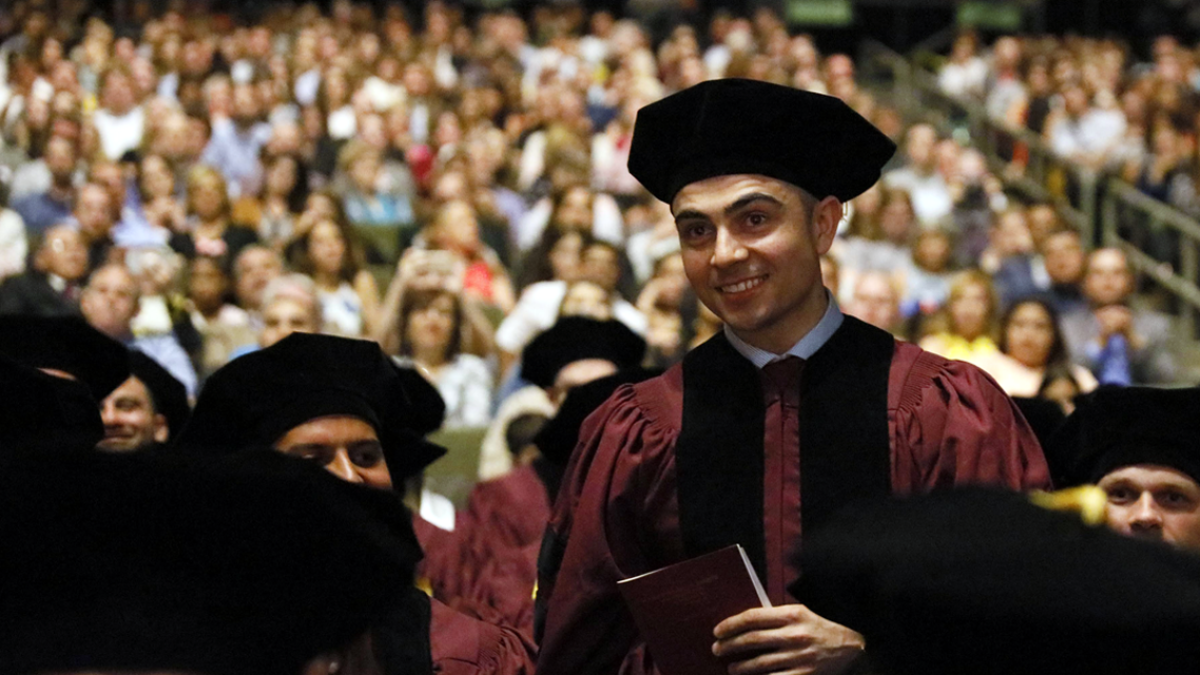
Recent graduate Zade Shakir participates in the Spring 2019 Sandra Day O’Connor College of Law convocation ceremony.
As the Sandra Day O’Connor College of Law at Arizona State University has raised its profile over the past decade, becoming the youngest top-25 law school in the country, it has seen a corresponding rise in attention and interest — both from prospective students and employers.
As a top ranked national and No. 7 public law school, ASU Law now draws a substantial majority of its applicants from out of state. Graduates are finding that ASU Law is not only a gateway to a robust legal job market in Arizona, but can also unlock opportunities at large firms throughout the country.
Although in-state applications have risen sharply, the increased interest from nearby states has been even more dramatic, and out-of-state students now make up the vast majority of applicants. ASU Law’s in-state applicant pool has risen from 414 in 2017 to 506 so far in 2020, a 22% increase. In that same time span, the number of nearby state applicants soared from 400 to 741 from California, an 85% jump, while Texas applicants rocketed from 131 to 348 — a leap of 166%.
“We provide a world-class legal education at a value compared to other schools in our ranking, and that is an attractive equation for any prospective law student,” said ASU Law Dean Douglas Sylvester. “But perhaps more importantly, we are committed to a positive outcome for every one of our students. From day one, we work to make their dreams a reality, knowing that wherever they want to work, a degree from ASU Law is going to open a lot of doors.”
A ticket to Texas
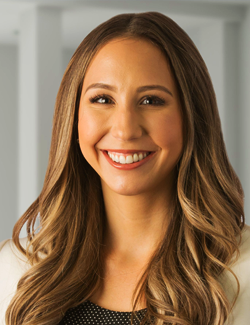
McCall Bauersfeld, JD '19, ASU Law.
After getting her undergrad degree at ASU and enrolling at ASU Law, Wisconsin native McCall Bauersfeld had fallen in love with the warm weather of Phoenix — and her fiancé — and was planning to soon launch a career in Arizona.
“I was recently engaged and we were still trying to figure out where we wanted to be, and Phoenix, at that point, just made sense,” the 2019 ASU Law graduate said. “I was in law school there and my fiancé had a job there, so the summer after my 1L year, I worked at Cohen Dowd Quigley, a boutique commercial litigation firm in Phoenix, and I absolutely loved it.”
But during her 2L year, her fiancé got a job in his native Texas. As he was commuting back and forth, her focus shifted to finding a position in Texas. She obtained an interview with Polsinelli, a firm with 21 offices across the country, including in Dallas. It was a perfect match: She worked there between her 2L and 3L years, and at the end of the summer received an offer to join the firm as an associate upon graduation.
“Then I took the Texas Bar and passed, and here we are,” she said.
Bauersfeld has been in the position for just over six months, and says it’s been a fantastic experience.
“Of course, I didn’t imagine we’d be facing a national pandemic during my first year of practice, but I feel so incredibly fortunate to be working at Polsinelli,” she said. “The people are wonderful and the work is interesting, which has made the transition to the professional world just that much easier.”
Zachary Ward’s journey has been similar to Bauersfeld’s. He grew up far from the Southwest — in his case, just outside of Charlotte, North Carolina — went to ASU Law and now works for a large law firm in Dallas, Jackson Walker LLP.
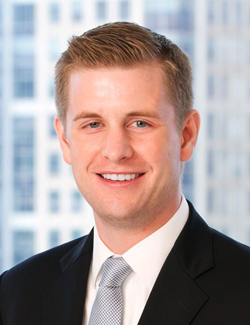
Zachary Ward, JD '19, ASU Law.
“ASU is a highly ranked law school, and I was going to take out debt to go to law school, so I wanted to go somewhere where I felt like I could be a competitive applicant in what I knew would be a competitive field,” he said. “So between my friends who are from the area, ASU being a well-ranked school and the employment statistics for ASU Law graduates, all three of those helped me choose ASU over other schools.”
There was one other thing: he knew he wanted to be a corporate attorney, not practice litigation. And he was impressed by the relevant experience of ASU Law’s faculty, with a number having worked as corporate and transactional attorneys in prestigious firms before returning to the classroom to teach.
“I feel like their experience and their knowledge was really something that helped us as students,” he said. “Even though law school is geared toward litigating attorneys, I feel like ASU, by the faculty they've hired and the class selection, have really helped narrow the gap.”
Circling back to California
Alec Rishwain is from Santa Barbara, California, and did his undergrad at UC San Diego. He had always set his eyes on attending law school and ultimately becoming a trial attorney.
“I got the best impression from touring ASU Law, and it was the top school I got into,” he said. “So it made sense for me to go there, especially since it wasn’t far from home.”
It was the right decision. He had a wonderful experience at ASU Law, serving as president of the Corporate and Business Law Society, a senior editor for the Sports and Entertainment Law Review, and graduating cum laude in 2018.
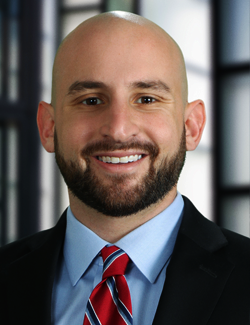
Alec Rishwain, JD '18, ASU Law.
“I loved my time at ASU Law. I had a great group of professors: (Chad) Noreuil, (Robert) Miller, (Erik) Luna, (Rhett) Larson, (Howard) Cabot – I could go on,” he said. “Some attorneys will tell you that law school doesn’t apply in practicing. Those attorneys went to the wrong law school. The tests that ASU Law required us to do and the intense cold calling on cases significantly benefited my analytical skills. The program also offers a wide variety of classes, clinics and externships that hone in on litigation skills. My trial advocacy class with Professor Cabot, which was essentially a mock trial for a semester, was an invaluable experience in displaying what the actual courtroom would be like. Also, between Sports and Entertainment Law Review, my independent studies with Professor Larson, and my legal writing courses, I developed strong research, writing and organizational skills that come into play almost every day in practice. I felt like I made the most out of ASU Law, and in turn it did a great job preparing me for practice.”
Although he entered law school with no particular destination in mind, the Phoenix summers made him long for the more temperate California weather. While awaiting his bar results, he got a stipend from ASU Law for a judicial fellowship with Judge Consuelo Callahan of the U.S. Court of Appeals for the Ninth Circuit. On Judge Callahan’s recommendation, he later interviewed with the Sacramento office of Lewis Brisbois Bisgaard and Smith LLP, where he has worked as an associate since passing the California Bar in November of 2018.
He emphasized that the stipend from ASU Law’s Career Services for the legal fellowship was instrumental in shaping his career path.
“Career Services at ASU Law was very helpful in placing me where I am today. They always promoted my career path by editing my resume and providing valuable career advice, and they gladly paid that stipend for the legal fellowship, which led to my current position. ASU Law takes care of their own.”
For the hundreds of Californians applying to ASU Law each year, Rishwain said they should have no concerns about coming back home to practice upon graduation.
“They should definitely go to ASU Law if they want to attain an excellent education,” he said. “They should not have any concern about going out of state to ASU Law and not being able to come back to California and find a good job. ASU Law is a highly ranked program for a reason. They have intelligent professors and a well-organized program that will challenge your intellectual and academic skills. Most importantly, they always have their students’ interests at heart. Work hard and make the most out of your time there, and you will have no problem practicing in California with a degree from the Sandra Day O’Connor College of Law.”
Big cities, big opportunities
Another Californian, Zade Shakir, entered ASU Law with an open mind, hoping to develop a broad skill set that would present him with a host of career options.
“I came in with a lot of interests, and one of my biggest interests was the intersection of sports, business and law,” he said. “And I had heard a lot of great things about ASU’s sports law offerings.”
He credits mentors within the ASU Law Sports, Law and Business program and the surrounding community — Executive Director Glenn Wong, Arizona Diamondbacks General Counsel Caleb Jay, Phoenix Suns Senior Vice President and General Counsel Melissa Goldenberg, among others — with helping him set a career vision and taking the steps to make it happen.
“Being around some of the people at ASU Law and in the Phoenix community really helped me develop my interest from just an exciting idea into a concrete path, to get me where I am today,” he said. “A big part of that has been the faculty at ASU, who have provided great mentorship inside and outside of the classroom, and also really great support from leaders in the Phoenix community, to myself and a lot of other students.”
While interning with the Warriors, Shakir worked with Chief Legal Officer David Kelly and Assistant General Counsel Paul Fenstermaker — former Katten attorneys who helped him get an interview for the first position he got with the firm after his 2L year, as a summer associate.
“I was fortunate to get a full-time offer after that, and I just started full time at Katten in September,” he said.
It’s exactly what he was looking for: sports-related legal work in one of the biggest markets in the country. And he credits ASU Law with helping him get there.
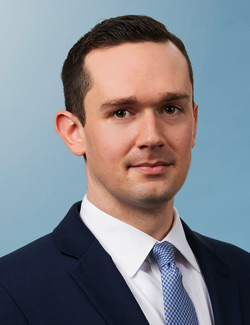
Daniel Dorson, JD '19, ASU Law.
Like Shakir, Daniel Dorson came to law school with a focus on sports, having already worked for several NFL teams. And he, too, was drawn to ASU Law for its renowned Sports, Law and Business program.
“What I really wanted to do was get a JD and get some experience in the legal world and make my way back into the sports world,” he said. “I wasn’t even sure that I’d even do anything legally related.”
Ironically, it was while working for the NFL that he found a new passion.
“My 2L summer, I worked for the NFL in New York for their labor division, and I kind of fell in love with traditional labor law,” he said. “It really wasn’t until my third year that I realized that I wanted to practice law for real.”
And once he made that decision, he was focused on the East Coast.
“I wanted to go somewhere where there’s a lot of opportunity to practice labor law, because it is a concentrated field,” he said. “It’s not what it was 30 years ago. Having interned in New York and made some connections in the labor law industry, I knew there was a pretty prevalent market. There are other markets, so I kept my options open, but I knew New York would be my best opportunity.”
He began networking in the labor sector at the beginning of his 3L year, and got a chance to interview with Faegre Baker Daniels, whose labor management relations team was based in Indianapolis, where Dorson is from. But Dorson was reluctant to move back home, so he kept his sights set on New York. He moved there, took the bar, did some part-time work and spent much of last fall looking for the right full-time opportunity.
Then, as fate would have it, Faegre Baker Daniels merged with Drinker Biddle. And the newly merged firm — Faegre Drinker Biddle and Reath — now had a New York office. Dorson reached back out, interviewed again, was offered a position and started his new job in March as an associate on the labor management relations team.
“I spent two and a half days in my office before New York shut down,” he said. “But it’s been relatively busy. Between the firm merger in February and, obviously, a lot of labor — and employment-related issues stemming from the COVID-19 outbreak, I’ve had a lot of work.”
Dorson also credits his ASU Law experience, and particularly the guidance from his Sports, Law and Business mentors, with helping him build a network.
“Professor (Don) Gibson and Professor Wong were always eager to introduce me to people and help me out in terms of networking and trying to connect with people in the sports world,” Dorson said. “And honestly, if I hadn’t ended up at the NFL, I probably would have kept on the path of not wanting to practice law, but it was my exposure to traditional labor in the NFL that really helped me out there.”
And Dorson says ASU Law was instrumental in helping him make connections in New York when he was seeking full-time work.
“The ASU Law Career Services team gave me a list of alumni who are here when I first moved to New York,” he said. “I was very surprised at how quickly all of the alums from ASU Law who are working here responded and were eager to give their advice and input. They were all very, very helpful, and it was great to see.”
A pathway to success
Assistant Dean Ray English, who oversees ASU Law’s Office of Career and Employment Services, says his department is always thinking about postgraduate outcomes for students — and that process begins before they first set foot on campus.
“From the very beginning, even before the students get here, we engage admitted students to develop a pathway to postgraduation employment,” he said. “Because you come to law school to get a job. But there’s so much you need to do between the time you start and the time you graduate to put yourself in a position to be competitive for the job you want to get.”
The process begins with an assessment for admitted students, having them answer questions for about 40 minutes. That produces a report with recommended careers they might want to pursue, both inside and outside the legal industry. From there, ASU Law staff stays in contact with students, communicating about curriculum, internships, externships and experiences needed to put them in the best position to secure their desired career.
“They highlighted the fact that your career starts your first day of your 1L year,” Bauersfeld said. “Every interaction you have, every connection you make, that’s going to impact where you end up. That set me up to see things in a different way from the get-go.”
She credits ASU Law’s on-campus interview program with helping her get the position with Cohen Dowd Quigley, noting that without that experience during her 1L summer, she may not have gotten her job with Polsinelli.
“The professional development classes that are required for 1Ls were also very beneficial,” she said. “Those classes introduced me to the importance of networking, and certainly helped develop my resume and interview skills.”
Ward seconds Bauersfeld’s comments and encourages students to reach out to ASU Law’s Office of Career and Employment Services.
“I can’t speak highly enough about ASU Law,” Ward said. “Obviously, they helped me tremendously. Every job I’ve gotten out of my law school career, I can trace back directly to an interaction with Career Services.”
More Law, journalism and politics

How to watch an election
Every election night, adrenaline pumps through newsrooms across the country as journalists take the pulse of democracy. We…
Law experts, students gather to celebrate ASU Indian Legal Program
Although she's achieved much in Washington, D.C., Mikaela Bledsoe Downes’ education is bringing her closer to her intended…

ASU Law to honor Africa’s first elected female head of state with 2025 O’Connor Justice Prize
Nobel Peace Prize laureate Ellen Johnson Sirleaf, the first democratically elected female head of state in Africa, has been named…